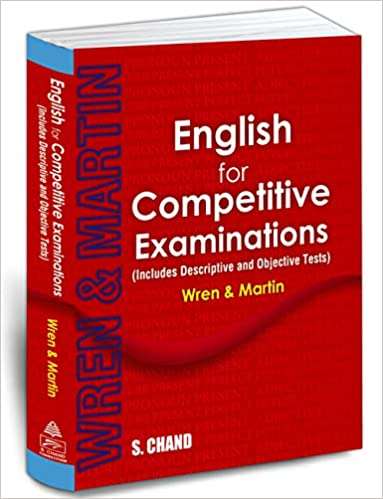What is a Preposition?
The word Preposition (as is indicated by Prefix ‘Pre’) is a word or a group of words that is placed before a noun or pronoun to indicate direction, method, place, source etc. In
other words, the noun or pronoun is shown to have a kind of relation with regard to something else with the help of a Preposition. e.g.,-
Preposition কি?
Preposition শব্দটি (যেমন উপসর্গ ‘Pre’ দ্বারা নির্দেশিত হয়) । এই শব্দটি একটি গোষ্ঠী বা দিক, পদ্ধতি, স্থান, ইত্যাদি নির্দেশ করার জন্য একটি বিশেষ্য বা সর্বনামের আগে স্থাপন করা হয়। অন্য কথায়, বিশেষ্য বা সর্বনামকে একটি Preposition-এর সাহায্যে অন্য কিছুর সাথে এক ধরনের সম্পর্ক দেখানো হয়।
(i) The Preposition may join one noun to another.
( Preposition একটি বিশেষ্যের সাথে আরেকটি বিশেষ্য যোগ করতে পারে।)
Sheena was in the kitchen. (‘Sheena’ and ‘kitchen’) ( এখানে স্নেহা ও কিচেন দুটিই Noun কিন্তু এই Noun দুটির সঙ্গে সম্পর্ক করেছে In )
1. At, in, on, of, off, through, below, with’ etc., are some of the prepositions. ( At, in, on, of, off, through, below, with’ ইত্যাদি হল কিছু Preposition)
2. The noun or pronoun used with the preposition is in the accusative case. e.g.,- (Preposition এর সাথে ব্যবহৃত বিশেষ্য বা সর্বনাম অভিযুক্ত কিছু উধাহরন নিচে দেওয়া হোল )
◙When verbs are placed after prepositions (other than ‘to’) they should be in the gerund form except when they are used in infinitive form. e.g.,
(যখন Verb , Preposition এর পরে বসে (‘to’ ব্যতীত) তখন সেগুলি gerund আকারে হওয়া উচিত যখন সেগুলি infinitive আকারে ব্যবহৃত হয়)
(i) I am confident of winning her love. ( of Wining place like as gerund)
(ii) She does not believe in wasting time.
(iii) She insisted on going to Pune.
(iv) She loves to watch T.V . ( ব্যাতিক্রম to এর ক্ষেত্রে এই নিয়ম প্রযোজ্য হবে না )
◙A Preposition sometimes may have more than one object. e.g.,
(একটি Preposition কখনও কখনও একাধিক বস্তু যোগ সম্বোধন করতে পারে)
(i) I gave money to Ritu and her brother. ( এখানে রিতু এবং তার ভাই দুটি সাবজেক্ট )
(ii) Distribute the mangoes among the boys and the girls.
Rules of Preposition
Rale I-
A preposition is usually placed before its object but sometimes it is placed after it in the following cases :
(একটি Preposition সাধারণত বস্তুর আগে স্থাপন করা হয় কিন্তু কখনও কখনও নিম্নলিখিত ক্ষেত্রে এটি এর পরে স্থাপন করা হয়)
◙(A) When the object in the interrogative pronoun is understood. e.g.,
(i)To whom are you talking? ( Incorrect )
Who are you talking to? ( Correct )
Whom are you talking to? ( Correct )
(ii) About what are you talking? ( Incorrect )
What are you talking about?( Correct )
(iii) For what are you looking? ( Incorrect )
What are you looking for?( Correct )
(iv) For what are you waiting?( Incorrect )
What are you waiting for?( Correct )
◙(B) When the object of the preposition is a relative pronoun ‘that’. e.g.,
(i) This is the book for that I have been looking.( Incorrect )
This is the book that I have been looking for.( Correct )
(ii) This is the picture of that she always talks.( Incorrect )
This is the picture that she always talks of.( Correct )
◙(C) When an infinitive qualifies a noun, the preposition should be placed after the infinitive, if required. e.g.,
(i) It is not a safe place to live. ( Incorrect )
It is not a safe place to live in . ( Correct )
(ii) He gave me a pen to write.
He gave me a pen to write with.
Rale II
◙(A) As a rule no preposition is placed after the following verbs when these verbs are used in active voice. (এই নিয়ম হিসাবে নিম্নলিখিত Verb এর পরে কোন preposition স্থাপন করা হয় না যখন এই verb গুলি active voice এ ব্যবহৃত হয়।)
(Stress, emphasise, discuss (matter), investigate, comprise, accompany,
consider, violate, demand, resemble, pervade, precede, succeed, reach (at), resign (post), attack, invade, resist, enter (come into), eschew, befall, order, direct, join, sign, affect, ensure, board, describe, await, lack, regret, concern e.g.)
(i) The police are investigating into the case. ( Incorrect ) এখানে into ছাড়াই sentanceটা ঠিক
(ii) The teacher emphasized on the need of discipline in life.
(iii) I have ordered for his transfer.
(iv) I shall discuss about the problem with you.
(v) Soni resembles with her mother.
(vi) Our college comprises of class rooms.
(vii) India has never attacked on any country.
◙(B) Omission of ‘to’ with verbs of communication before the object, (যে বস্তুর আগে Verb সাথে ‘to’ বাদ দেওয়া) (‘advise, tell, ask, beg, command, encourage, request, inform, order. urge. e.g.,-)
(i) I advised to him to go. ( Incorrect )
I advised him to go
(ii) I informed the police of the accident. ( Incorrect )
I informed the police of the accident.
(iii) I enquired of him. ( Incorrect )
I enquired him
Rule III
Use of preposition in relation to its object-
◙(A) Omission of preposition before Indirect Object. Study the following verbs (bring, give, lend, promise, leave, sell, buy, show, take, fetch, tell, hand, send,
sing, read, cost, play (an instrument), find, get, ask, offer etc.’ e.g.)
(i)I shall fetch you books from market.
Or I shall fetch books for you from market.
(ii) Her father left him large property.
Or Her father left large property to him.
(iii) I shall buy you this necklace.
Or I shall buy this necklace for you.
(iv) I shall find Robin a nice job.
Or I shall find a nice job for Robin.
(v) Will you sing me a song?
Or Will you sing a song for me?
◙(B) Note the placement of proper object (Direct/Indirect) with the use of the following verbs with special reference to the preposition.
The use of verbs ‘provide, supply, furnish, entrust, present’. e.g.,
I provided him money. ( Incorrect )
I provided him with money. (Correct)
Or I provided money to him. (Correct)
◙(C) The correct use of ‘rob, fine, inform, explain, recommend, compensate, suggest, propose’, in relation to objects. e.g.,
(a) Rob a person of something.
(b) Fine someone (ten rupees etc.).
(c) Inform someone of something.
(d) Explain something to a person.
(e)Recommend/Suggest/Propose something/some-body to others.
(f) Compensate someone for something. e.g.,
Examples worked out-
(i) He robbed the old woman of all her ornaments.
(ii) The teacher fined him ten rupees.
(iii) We informed the police of the accident.
(iv) The teacher explained the meaning of the poem to us.
(v) He recommended me for promotion to the Principal.
(vi) He recommended this book to his students.
(vii) I shall compensate you for the loss.
Rule IV
A student should take special note of the following Prepositions :
◙(A) ‘Than & but’ as Preposition : ‘Than & but’ are usually conjunctions. However, they may be sometimes used as
Prepositions. e.g., ( Than and But সাধারণত Conjunction, যাইহোক, তারা কখনও কখনও Preposition হিসাবে ব্যবহার করা যেতে পারে )
(i) I did not see any other person than your brother.
(ii) I did not see any body else but your brother.
◙(B)’Between’ is used while referring to two persons/things. It may also be used for two or more in choice.
‘Among’ is used while referring to more than two persons/things. e.g., (দুটি ব্যক্তি/বিষয় উল্লেখ করার সময় ‘এর মধ্যে’ Between ব্যবহার করা হয়। দুটির বেশি ব্যক্তি/বিষয়কে উল্লেখ করার সময় Among ‘এর মধ্যে’ ব্যবহার করা হয়। )
(i) The two brothers divided the property between themselves.
(ii) The two brothers and their sisters divided the property among themselves.
Note: Between the students in the class which is the best? (between is correct in choice for more than two)
◙(C) Beside, Besides
‘Beside’ means ‘by the side of’.
‘Besides’ means ‘in addition to’. e.g.,
(i) Besides studying he is also working somewhere.
(ii) She sat beside him at the party.
◙(E) By/ With ( Very Important for Examination )
By’ is used for ‘doer’ of the action.
With’ is used to denote the instrument. e.g.,
(1) He struck the dog with a stick. (কোন কাজ যদি কোন ইন্সট্রুমেন্ট দ্বারা করা বোঝানো হয় সেক্ষেত্রে With ব্যবহার করা হয়)
(ii) A dog was struck by him. (যদি কোন কাজ কোনো ব্যক্তি বা মানুষের দ্বারা করা বোঝানো হয় তাহলে সে ক্ষেত্রে by ব্যবহৃত হয়)
◙(F) Since (as a preposition)
(a) Since is used for time expression (time from the past to the present.)( কোন ঘটনা হয়েছে বর্তমানে সেই ঘটনার সময় বোঝাতে Since ব্যবহার করা হয় )Since is used for a definite time in the past or some past occasion. e.g., since birth, since last Sunday, since Diwali, since 2’o clock.
(i) I have not met him since last month.(From last month till now)
(ii) She has been doing home work since morning. (From morning till now)
(b) Since as a conjunction
(i) It is ten years since I saw him.
(ii) I have not met him since he came back.
◙(G) For’ is used for time expression (indefinite) and a specific period of time (for two months/six years/two hours etc.) e.g.,
(i) I shall go to Delhi for two weeks.
(ii) Heayed with me for two hours daily.
(iii) She has been sleeping for two hours.
(iv) She has been in Delhi for one week.
◙(H) From, Between ‘From’ is normally used with ‘to/till/until’. ‘Between’ is used with ‘and’. e.g.,
(i) He works in the office from ten to five.
(ii) The reception will be held between 5 p.m. and 9 p.m. (Period of time) (Time Expression)
◙(I) Before, Ago ‘Before’ denotes the preceding action and can also be used in place of ‘Ago’. ‘Ago’ refers to the past action. e.g.,
(i) She left India two days ago/before.
(ii) She had left India before she was married. (Conjunction) (Preceding action)
◙(J) In, At ‘In’ refers to towns, cities and countries in a wider sense while ‘at’ is used for speaking of comparatively smaller places. e.g.,
(i) He lives in Delhi.
(ii) He lives at Rohini in Delhi.
◙(K) In, Into ‘In’ denotes position whereas ‘into’ shows movement and entrance. e.g.,
(i) The students are in the classroom.
(ii) The students came into the classroom.
◙(L) On, Upon ‘On’ denotes position, ‘upon’ denotes movement. e.g.,
(i) The book is on the table.
(ii) He threw the book upon the table.
◙(M) Within, In, On,
◙(M)’Within’ means before the end of time, ‘In’ means at the end of time while denoting a period of time. e.g.,
(i) He will return in ten minutes. (নির্দিষ্ট কোন সময় ধার্য করে দিলে সে ক্ষেত্রে ইন ব্যবহৃত হয়)
(ii) He will return within ten minutes. (কোনো সময়সীমা নির্দেশ করে দিলে সেই ক্ষেত্রে Within ব্যবহৃত হয়)
(iii) The train is running on time. (সঠিক সময়ে বোঝাতে On ব্যবহৃত হয়)
(N) Till, To (upto) ‘Till’ is used of time. e.g.,
He studied till 11 p.m.
(b) To (upto) is used of place/distance. e.g.,
I went upto Rani Bagh. (কোন জায়গার ক্ষেত্রে দূরত্ব বোঝাতে upto ব্যবহার করা হয়)
Rule V
◙When two words or adjectives require different prepositions, appropriate prepositions should be used with both the words. e.g.,
(i) He is senior and older than I. (Use ‘to’ after ‘senior)
আমাদের ফ্রী ইংলিশ গুলি পেতে নিচে বোটম এ ক্লিক করুন
English for Competitive Examinations





